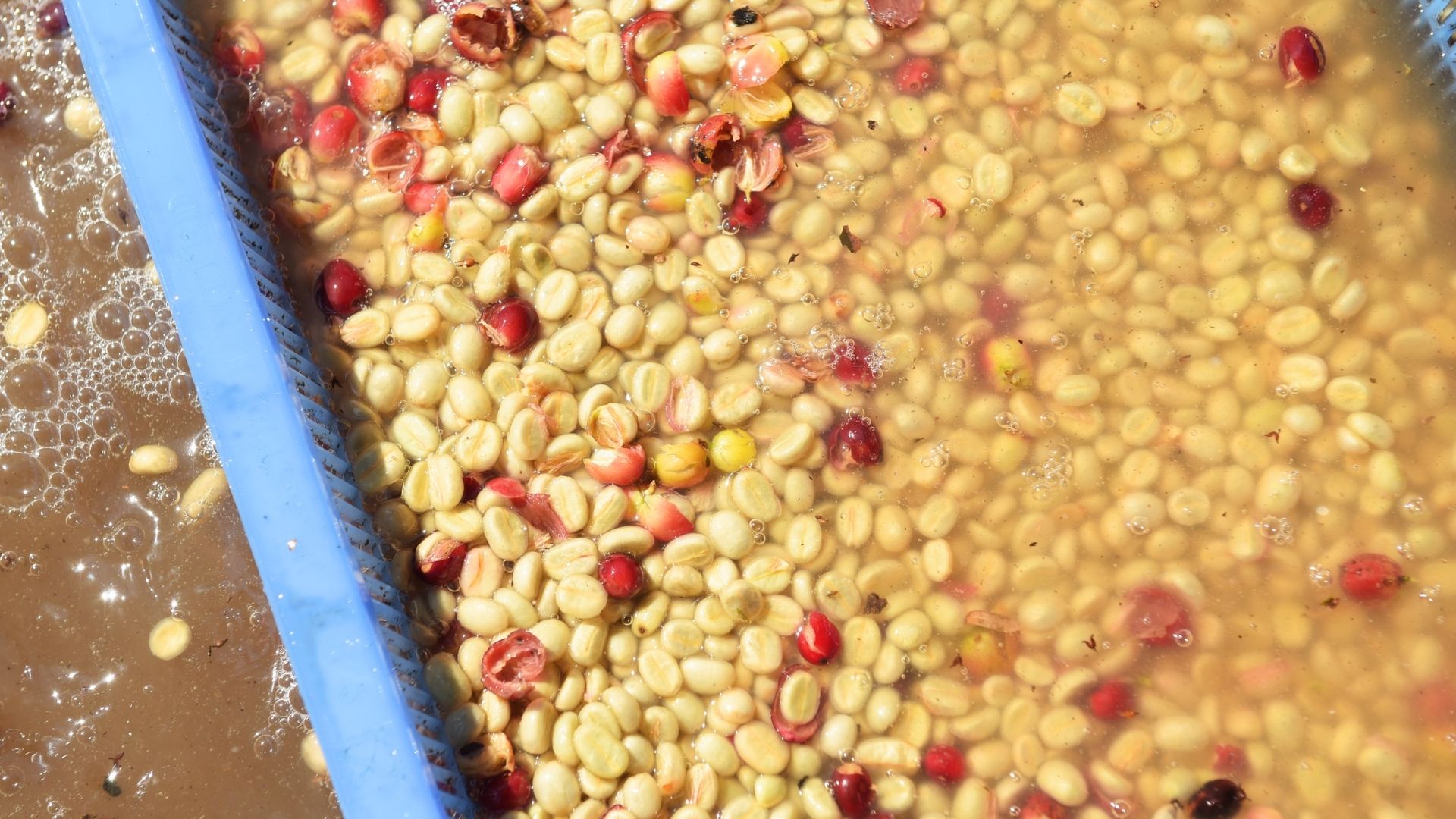Fermented products have been a growing trend in the food industry, with many well-known examples such as kimchi, kombucha, kefir, tempeh, and more. But fermented products are not limited to just food – the specialty coffee market has also embraced this trend. Nowadays, it’s increasingly common to find fermented coffee beans among the offerings of coffee roasters worldwide.
Fermentation is better in extracting certain tastes and aromas of coffee beans. Still, what exactly is this fermentation process? Check out this article to find out more!
Table of Contents
What are Fermented Coffee Beans?

The so-called fermented coffee beans are green beans that undergo fermentation before they’re dried and roasted. During the fermentation process, bacteria and yeast will consume the sugar contained in the coffee fruit, break it down, and then create new compounds that will give a new angle to the taste or aroma.
Even though it is fermented, it does not mean the coffee beans will have many probiotics. Since the fermentation process comes beforehand, all the previously existing probiotics in coffee beans have been lost during the roasting process.
In addition to fermented coffee beans, there is also a beverage known as fermented coffee, sometimes referred to as cultured coffee. This coffee is fermented after going through the brewing process to be mixed with yeast or bacteria, which are then left to sit for several days.
4 Health Benefits of Fermented Coffee Beans

1. Easier to Digest Than Regular Coffee
Fermentation converts hard-to-digest substances into simpler molecules the body can handle more easily. It also has a lower concentration of certain chemical compounds (associated with digestion), thus making it easier to digest than regular coffee.
2. Easier on People with Irritable Bowel Syndrome
Irritable bowel syndrome (IBS) is a medical condition that affects the digestive (gastrointestinal) tract, where the muscles and nerves in the intestine do not function properly, disrupting intestinal function. People with this disease are usually not suitable or advisable to drink regular coffee.
Meanwhile, long-fermented coffee usually has lower acid levels and a smoother taste, making it easier for people with IBS to digest. Still, those with a history of IBS need to ask their doctors whether they can or can’t consume fermented coffee and how much they can take.
3. Easier on the Teeth
Coffee, tea, and wine all have tannins, a compound that can turn our teeth yellow due to their chemical structure. The tannins in fermented coffee beans are much smaller, which means much smaller teeth damage. If you are interested in trying coffee that is low in tannins and went through a fermentation process, you could try premium specialty civet “Luwak” green coffee beans that are available at Indonesia Specialty Coffee.
4. Cleaner and Safer to Consume
The fermentation process also uses specific microorganisms that can inhibit the emergence and growth of fungi inside coffee beans. This makes coffee beans last longer and are safer for consumption.
How to Make Coffee from Fermented Coffee Beans?

The process of making fermented coffee involves the following steps:
1. Soak the Green Coffee Beans
Soaking the unroasted coffee beans will make it easier for fermenting microorganisms to come into contact with the seeds and gives them a medium to grow.
2. Inoculate the Green Coffee Beans
The soaked green coffee beans are then injected with yeast or bacteria to form a “solution” in the coffee beans. The types of bacteria and yeast used are diverse, and each can have a different taste or aroma impact on coffee beans.
3. Let It Soak for 24-48 Hours
This step lets the coffee beans soak for 24-48 hours to allow the fermentation process. During this period, bacteria and yeast will work and change the chemical composition in the coffee beans, resulting in coffee beans with a distinct taste and aroma.
As the most important or technical stage, we must closely monitor or adjust things like temperature, air, light, and time (we need to know when to stop the fermentation process).
4. Wash and Dry the Green Coffee Beans
We must wash the coffee beans with clean water to remove traces of their fermentation. Then, dry the coffee beans to avoid further fermentation so that the beans won’t spoil faster.
Also Read: From Dry to Fermentation: A Guide to Coffee Processing Methods
5. Roast the Green Coffee Beans
During the roasting process, an oxidation process of organic compounds in the coffee beans occurs, producing the aroma or taste that usually comes out when we brew them. How we roast the coffee beans also affect the taste, for example, whether we roast them at light, medium, or dark level.
6. Grind the Coffee Beans
There are various ways to grind coffee beans. We can grind them as usual, namely in the condition of dry coffee beans. Or else, we can try a new technique, such as the “monsoon process” from India that uses moist and fungi-contained coffee beans. Accordingly, an additional fermentation process occurs – or fermentation is not just at the beginning.
So, are fermented green beans a yes or a no? If yes, get yourself a unique fermented coffee made of Luwak green coffee beans from Indonesia Specialty Coffee. And if not, you still can enjoy other kinds of coffee from our best-seller green coffee beans collection!

